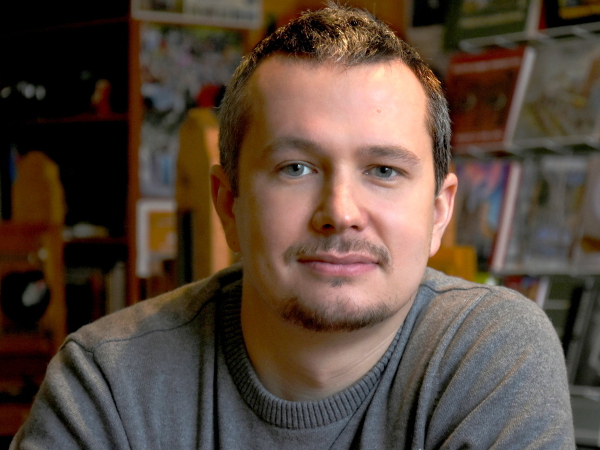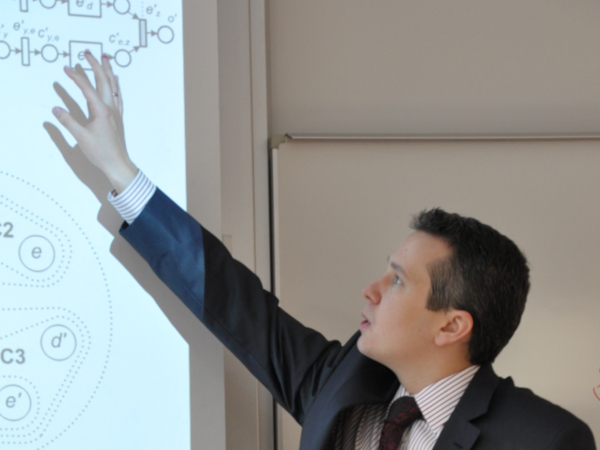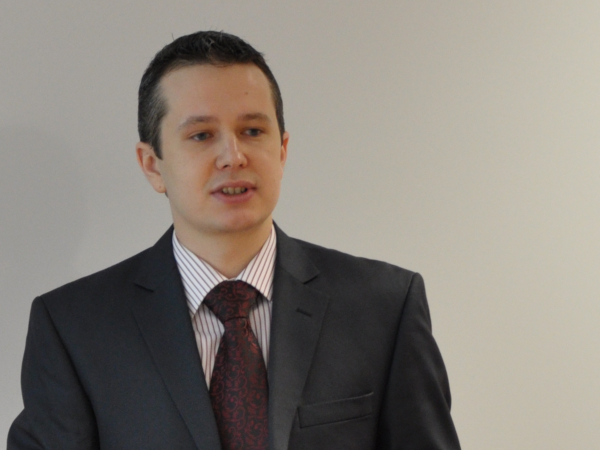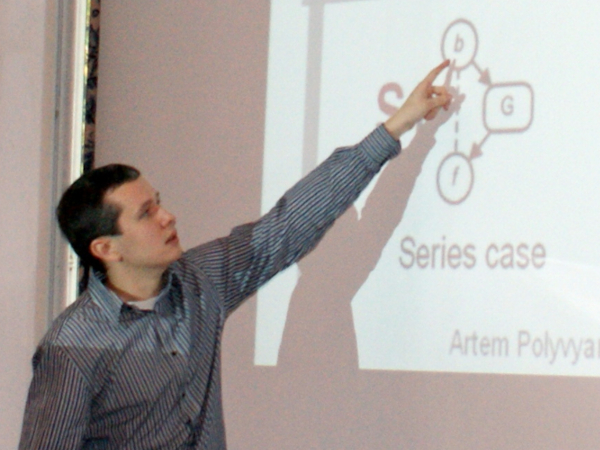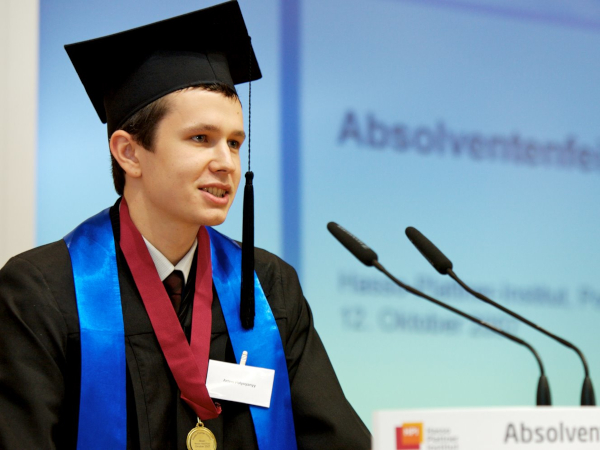Opportunities for PhD Studies
Detailed information on graduate research programs at the School of Computing and Information Systems of the University of Melbourne can be accessed here.
We are looking for students to work on the topics listed below. Contact me for more information.
Topic 1: Automated Process Model Repair
Process model repair is concerned with this problem in process mining: Given an event log of a process-aware information system, i.e., a recorded sequence of activities performed by the system, that deviates and, hence, cannot be replayed by the system, automatically transform the design of the system so that the transformed system can replay the event log. Process model repair allows keeping models of process-aware information systems in sync with observed executions. The reasons for the deviations between designed and observed executions of systems are manifold. For example, a deviation can be caused by a decision to perform an ad hoc activity while executing an outdated business process that no longer caters for all the requirements, or may stem from a bypass of a recognized problem in the design.
The study of the process model repair problem is an integral part of our broader research program on design of automated methods for management of process knowledge within organisations.
Discipline areas: Process Mining, Business Process Management.
Current research interests in process model repair include:
- Impact-driven process model repair;
- Techniques for process model repair;
- Quality metrics of process model repair;
- Empirical studies on process model repair.
Concrete outcomes of a PhD project will depend on the specific path the project will follow and may include new techniques, algorithms, and methodologies for solving the process
model repair problem.
Related Publications
Artem Polyvyanyy, Andreas Solti, Matthias Weidlich, Claudio Di Ciccio, and Jan Mendling
Behavioural Quotients for Precision and Recall in Process Mining
March, 2018.
Artem Polyvyanyy, Wil M.P. van der Aalst, Arthur H.M. ter Hofstede, and Moe T. Wynn
Impact-Driven Process Model Repair
[postprint] [slides] [poster]
ACM Transactions on Software Engineering and Methodology (TOSEM), 25(4), pp. 28:1-28:60, 2017, ACM, NY, USA.
Topic 2: Advanced Process Querying
Process querying studies automated techniques for managing large collections of models of process-aware information systems based on process instances that these models describe. A user interacts with a collection of process models via process querying intents. A process querying intent is a formally specified request to manage a collection of process models for a particular purpose. Process querying research initiative spans a wide range of topics from theoretical studies of algorithms and the limits of computability of process querying techniques to the practical issues of implementing process querying technologies in software.
The study of process querying techniques is an integral part of our broader research program on design of automated methods for management of process knowledge within organisations.
Discipline areas: Process Querying, Business Process Management.
Current research interests in process querying include:
- Decidability and complexity of process querying;
- Design of process query languages;
- Empirical studies on process querying;
- Design of index data structures for fast process querying;
- Explanation and visualization of process querying results;
- Event log querying.
Concrete outcomes of a PhD project will depend on the specific path the project will follow and may include new techniques, algorithms, and methodologies for process querying.
Related Publications
Artem Polyvyanyy, Chun Ouyan, Alistair Barros, and Wil M.P. van der Aalst
Process Querying: Enabling Business Intelligence through Query-Based Process Analytics
[postprint]
Decision Support Systems (DSS), 100, pp. 41–56, 2017, Elsevier.
Artem Polyvyanyy, Marcello La Rosa, and Arthur H.M. ter Hofstede
Indexing and Efficient Instance-Based Retrieval of Process Models Using Untanglings
[postprint]
Proceedings of the 26th International Conference on Advanced Information Systems Engineering (CAiSE)
Thessaloniki, Greece, June 16-20, 2014. LNCS 8484, pp. 439-456, Springer International Publishing.
Artem Polyvyanyy, Matthias Weidlich, Raffaele Conforti, Marcello La Rosa, and Arthur H.M. Ter Hofstede
The 4C Spectrum of Fundamental Behavioral Relations for Concurrent Systems
[postprint]
Proceedings of the 35th International Conference on Application and Theory of Petri Nets and Concurrency (Petri Nets)
Tunis, Tunisia, June 23-27, 2014. LNCS 8489, pp. 210-232, Springer International Publishing.
Arthur H.M. ter Hofstede, Chun Ouyang, Marcello La Rosa, Liang Song, Jianmin Wang, and Artem Polyvyanyy
APQL: A Process-Model Query Language
[postprint]
Proceedings of the 1st Asia Pacific Conference on Business Process Management (AP-BPM)
Beijing, China, August 29-30, 2013. LNBIP 159, pp. 23-38, Springer International Publishing.
